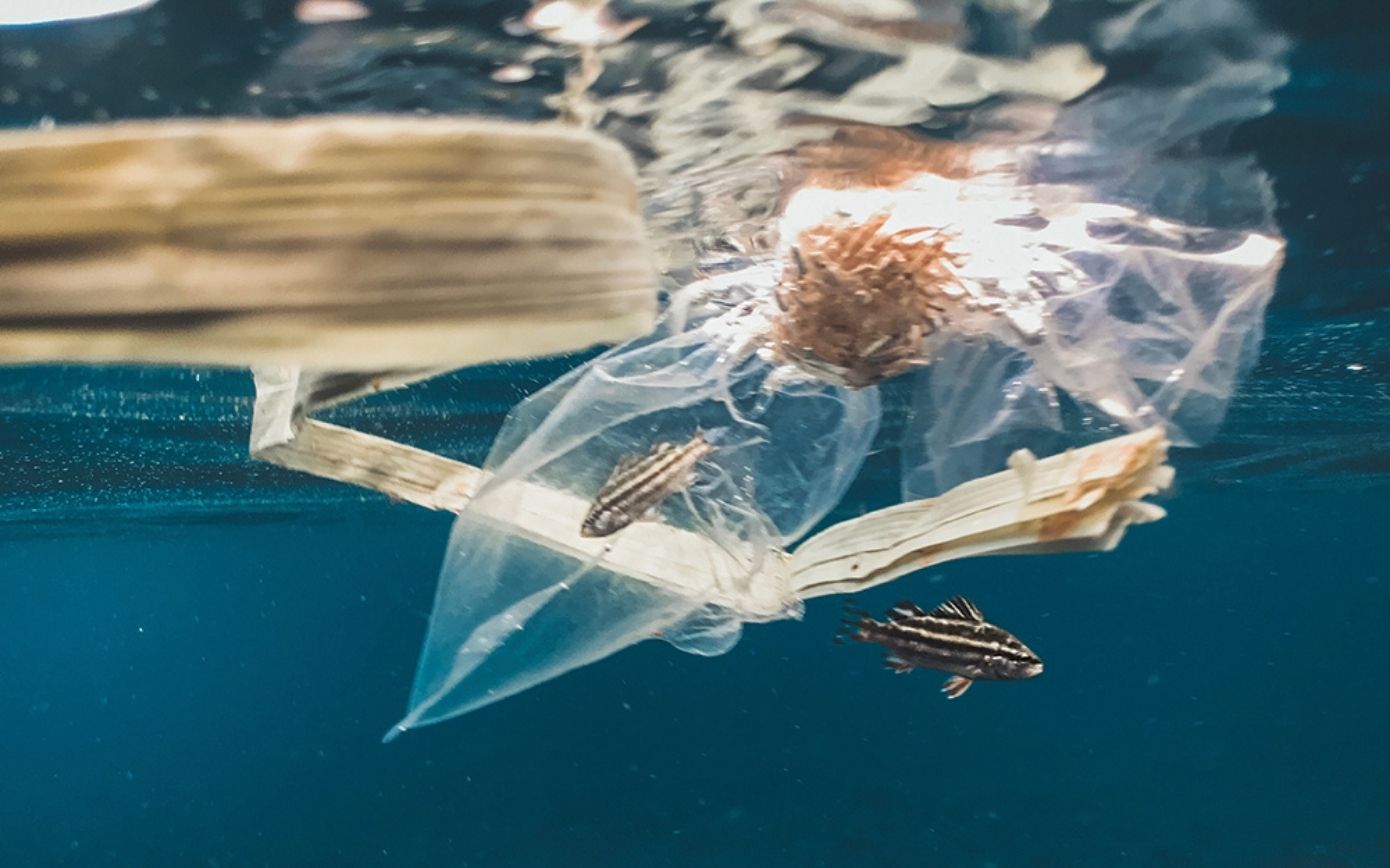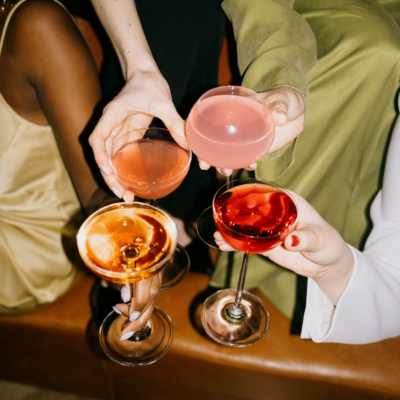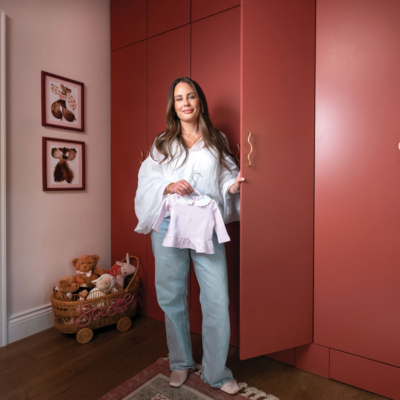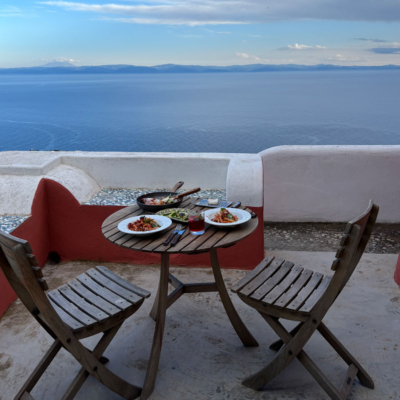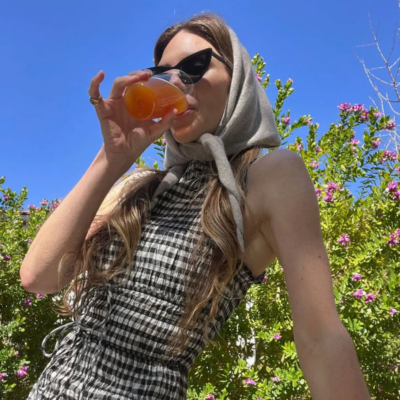There is no better time to join the global campaign for plastic waste reduction, Plastic Free July …
Oh my, my, July. The month we truly recline into long evenings and outdoor happenings, post-work picnics and pre-work sea swims, lunch breaks spent al fresco and dates aligned to the Met Éireann forecast and invariably featuring a “coffee and a nice walk” somewhere. Oh, how it thrills me, this complete surrendering to the outdoors! And yet, this collective expulsion of our interior habits into our wild Irish exterior, is not always mutually beneficial. While the outdoors does wonders for us, we often do not do wonders for the outdoors.
July, between summer outings and social gatherings, is the month of grab-and-go. Deli counters become our kitchen cupboard, and plastic tubs become our new, disposable crockery. Picnics depend on a parade of plastic – cutlery, containers, cups, condiment sachets – that, for all our good intentions, we rarely reuse. Never mind the mountain of debris which will be generated on our city streets this summer by takeaway (plastic) pints?
There is no better time to join the global campaign for plastic waste reduction, Plastic Free July. An annual campaign established in 177 countries, Plastic Free July seeks to encourage global citizens to reduce their single-use plastic consumption with practical ideas individuals can implement at home, work, school, and in the local café. Launched in 2011, this award-winning initiative saves a total of 940 million kilos of plastic waste each year. Households participating in the challenge reduce their annual waste and recycling by 21kg per person.
Now it might seem in our small nation that the issue of plastic waste is, while important, not exactly urgent. However, no country needs a plastic reduction strategy more than our green isle. In a recent study, Ireland was shown to be the largest plastic polluter in Europe. Our annual plastic packaging waste is at a staggering 55kg per capita – an abominable increase from the EU average of 33kg. In my beloved home city of Cork alone, households generate 32,900 tonnes of single-use plastic packaging waste every year. That’s enough plastic to fill 730 Olympic-size swimming pools! More than this, we have the fourth-worst recycling rate and, of the plastic we do attempt to “recycle”, 441,017kg of it ends up in the ocean.
In my beloved home city of Cork alone, households generate 32,900 tonnes of single-use plastic packaging waste every year. That’s enough plastic to fill 730 Olympic-size swimming pools!
How could this be? Well, because recycling, at the best of times, is a flawed system that creates almost as much waste as it supposedly aims to save. On an individual level, we are far too fond of plastic to begin with. Placating ourselves with the back-pat of recycling our vice, we nevertheless contaminate almost 40 per cent of this plastic recycling by failing to correctly separate and dispose of it. CLEAN, DRY, and LOOSE, is the non-negotiable rule of recycling that many of us either forget or are unaware of, with one unwashed, ready-meal container, one mouldy milk carton, one compounded collection of mixed plastics destroying not only our good intentions but our entire green bin. Add to this the approximate 87,000 tonnes of non-recyclable materials chucked into Irish recycling bins every year and before we even reach the problematic stages of disposal we have already squandered almost half of our reusable detritus.
From our kerbsides, our recycling is taken to one of nine national packaging facilities where it is sorted into individual materials to be sold to processing plants who will recycle them into new products. Very little processing is done here in Ireland: we export 89 per cent of our recycling. Since China banned waste imports in 2017, this means sending it to primarily developing countries such as Taiwan, Vietnam, and Malaysia who should turn this waste into new products they can then sell back to us. However, this allegedly circular – if unequal – system is by no means a given.
Research conducted by NUI Galway and the University of Limerick has found that almost a third of plastic exported from the EU to Asia is never recycled. Instead, it finds its way into already overstretched waste management systems, ultimately ending up in landfill or the ocean.
Suddenly, the need for a national commitment to Plastic Free July feels not only imperative, but downright inadequate. Indeed, it feels like we should be committing to a Plastic Free 2021, 2022, adinfinitum! And we have committed to something close to that: Ireland has pledged to reduce plastic waste by 70 per cent by 2030.
Yet, as this piece despondently shows, we are a long way from achieving this.
This is where Plastic Free July could be the life raft we need to navigate our way out of our plastic-littered lives. Let us remember that 85 per cent of Plastic Free July participants have continued the habits this one small commitment instilled in them in one month. Doesn’t that sound hopeful? Closer to home, there are many practical aids to help us in curing our addiction to the most convenient and ubiquitous of drugs.
CUSP (Cease Single-Use Plastic) is an Irish app designed to support households in drastically reducing their plastic consumption. Working similar to a calorie-counting app, CUSP allows users to easily track and reduce their plastic waste with a saving goal of 1kg per month. Featuring useful tips, the app has already helped early and enthusiastic users of the app to cut their plastic use by 2.5kg – more than double the initial target.
Instead of single-use plastic at your picnic, deploy bamboo plates and cutlery, resuable plastic from home, or even proper plates. I recently discovered a UK company called Weaver Green whose smart picnic rugs are made entirely from plastic bottles. I’d love to find an Irish company which does the same (answers on a postcard please!). The truth about plastic is actually overwhelming – almost as overwhelming as the plastic itself floating in our oceans and ecosystems. But we can make a difference.
LOVETHEGLOSS.IE?
Sign up to our MAILING LIST now for a roundup of the latest fashion, beauty, interiors and entertaining news from THE GLOSS MAGAZINE’s daily dispatches.






